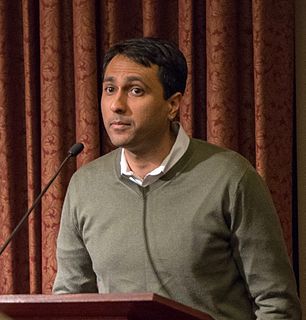A Quote by Peter Kropotkin
Each individual is a cosmos of organs, each organ is a cosmos of cells, each cell is a cosmos of infinitely small ones; and in this complex world, the well-being of the whole depends entirely on the sum of well-being enjoyed by each of the least microscopic particles of organized matter. A whole revolution is thus produced in the philosophy of life.
Related Quotes
Man tries to make for himself in the fashion that suits him best a simplified and intelligible picture of the world; he then tries to some extent to substitute this cosmos of his for the world of experience, and thus to overcome it. This is what the painter, the poet, the speculative philosopher, and the natural scientists do, each in his own fashion. Each makes this cosmos and its construction the pivot of his emotional life, in order to find in this way peace and security which he can not find in the narrow whirlpool of personal experience.
If the estimated age of the cosmos were shortened to seventy-two years, a human life would take about ten seconds. But look at time the other way. Each day is a minor eternity of over 86,000 seconds. During each second, the number of distinct molecular functions going on within the human body is comparable to the number of seconds in the estimated age of the cosmos. A few seconds are long enough for a revolutionary idea, a startling communication, a baby's conception, a wounding insult, a sudden death. Depending on how we think of them, our lives can be infinitely long or infinitely short.
The cosmos exploded, actualizing its potentiality of space and time. The centers of power, like fragments of a bursting bomb, were hurled apart. But each one retained in itself, as a memory and a longing, the single point of the whole; and each mirrored in itself aspects of all the others throughout all the cosmical space and time.
Religious pluralism is neither mere coexistence nor forced consensus. It is a form of proactive cooperation that affirms the identity of the constituent communities while emphasizing that the well-being of each and all depends on the health of the whole. It is the belief that the common good is best served when each community has a chance to make its unique contribution.
And so, at least symbolically, the blood of Eve courses through each one of her daughters' veins. We are each associated with life; each subject to the impossible expectations and cruel projections of men; each fallen, blamed, and misunderstood; and each stubbornly vital to the process of bringing something new--perhaps something better--into this world...We are each an Eve.
Each of the parts of philosophy is a philosophical whole, a circle rounded and complete in itself. In each of these parts, however, the philosophical Idea is found in a particular specificality or medium. The single circle, because it is a real totality, bursts through the limits imposed by its special medium, and gives rise to a wider circle. The whole of philosophy in this way resembles a circle of circles. The Idea appears in each single circle, but, at the same time, the whole Idea is constituted by the system of these peculiar phases, and each is a necessary member of the organisation.
The American ideal is not that we all agree with each other, or even like each other, every minute of the day. It is rather that we will respect each other's rights, especially the right to be different, and that, at the end of the day, we will understand that we are one people, one country, and one community, and that our well-being is inextricably bound up with the well-being of each and every one of our fellow citizens.











































